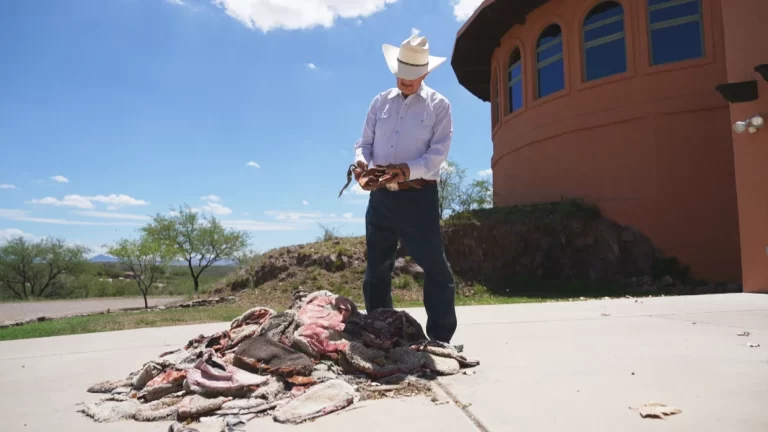While Texas Gov. Greg Abbott places buoys in the Rio Grande to make it harder for migrants to cross into his state, a growing number of migrants have braved record-breaking heat and dangerous terrain to cross into Arizona.
Long considered the most dangerous area to cross the U.S.-Mexico border, the Tucson sector is now also its busiest. On average, more than 1,300 migrants cross daily despite temperatures that regularly top 100 degrees, according to Customs and Border Protection data obtained by NBC News.
“This is a very rough, rough entrance into the United States,” said Jim Chilton, a rancher in Arivaca, Arizona, who regularly sees migrants cross his 50,000 acres of land.
“It’s gotten worse,” he said, noting a seemingly undeterred migrant population traversing his ranch.
Most of the migrants trying to cross Chilton’s property are single adult men trying to evade detection by Border Patrol. But in other areas, like around Nogales, families with young children are turning themselves in to agents to seek asylum. NBC News recently traveled with Border Patrol agents in Nogales as they apprehended a group of 20 women and children who had crossed the border early in the morning, when the air was still cool.
One mother traveling with her 16-year-old son said they had been sleeping in the mountains and decided to turn themselves in to U.S. Border Patrol because they were exhausted and had nothing to eat.
The increase in families is especially concerning to Border Patrol agents and rescue workers, given this summer’s temperatures.
Agent Ronaldo Rios, the acting director of the Arizona Air Coordination Center, told NBC News he has seen groups crossing with more than 200 women and children, including babies and toddlers.
“The common hazard that folks are hearing about is going to be the heat,” said Rios. “Exposure to the elements — being out in our terrain or mountainous terrain for long periods of time — without any water.”
John Russell, an air interdiction agent who flies Black Hawk helicopters for Customs and Border Protection’s Air and Marine operations, said that his unit recently received 26 calls for help in a single day. Many migrants who were trying to cross the border in remote terrain called for help during the first storm of southern Arizona’s annual monsoon season.
Calls to 911 “started rolling in,” said Russell. “There were three that we weren’t able to get to due to weather, aircraft availability. One of those was later found deceased. He didn’t make it. He succumbed to the weather.” Department of Homeland Security officials are worried about the overall rise in families crossing the border as well. In Tucson, in particular, the rise in families could mean more migrant deaths.
“We are seeing very little kids that need water,” said Alejandro Avirde, a border patrol agent. “They’ve been doing this hike for five hours, and they’re in need of water.”
— CutC by nbcnews.com


